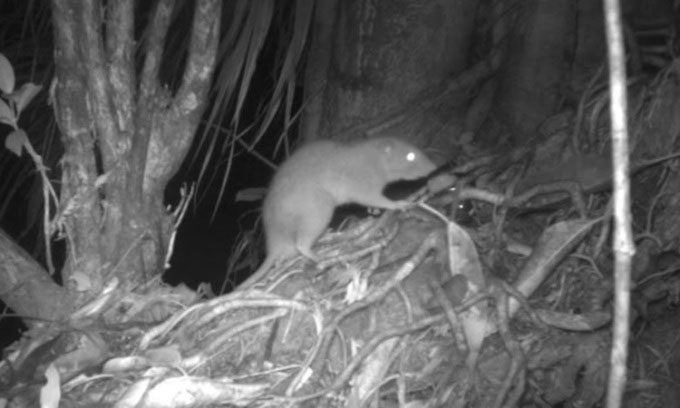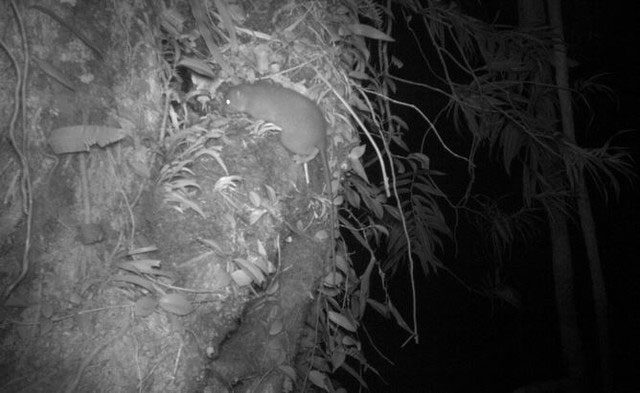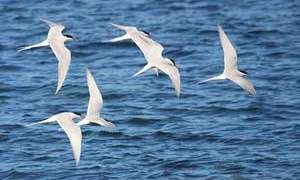Researchers Capture First Images of the Rare 45 cm Long Rodent on the Solomon Islands Using Camera Traps.
In 2017, scientists discovered a giant rat capable of cracking open coconuts. Now, this extremely rare creature has been photographed for the first time in the wild, according to a study published in the journal Ecology and Evolution, as reported by New Atlas.

Camera trap captures image of the giant Vangunu rat. (Photo: Tyrone Lavery)
Local residents of the Solomon Islands have long spoken of a giant rat that crawls around tree bases and can even chew through coconut shells. It wasn’t until 2017 that a team of scientists from the Field Museum in Chicago found a living specimen during an expedition and confirmed it as a completely new species through DNA analysis. Named the Vangunu giant rat (Uromys vika), an individual can weigh up to one kilogram and measure 45.7 cm long, which is 3 to 4 times larger than common black or brown rats.
At that time, the Vangunu giant rat was illustrated in scientific descriptions. However, recently, researchers captured the first photographs of them using camera traps set up around Vangunu Island, based on local knowledge of the species. The rats appeared in 95 photographs, allowing the research team to identify four individuals.
Unfortunately, these may be the only photographs of the Vangunu giant rat. Despite being discovered a few years ago, their rarity has placed them on the critically endangered species list, and their habitat around Zaira Village is under threat.
“It is likely that this is the last remaining habitat for this species,” the expert added.

A rare giant rat captured by the camera on Vangunu Island.
Currently, the International Union for Conservation of Nature’s Red List classifies Uromys vika as critically endangered due to its habitat being limited to an island of just over 500 square kilometers.
Worryingly, the area where these giant rats were found is less than 80 km2 and is rapidly being destroyed due to logging activities.
A long-standing debate has occurred between indigenous tribes and the government of the Solomon Islands regarding the conservation of the precious ecosystems remaining on the island.
In November 2022, however, the Solomon Islands government agreed to allow logging on the traditional lands of the Dokoso tribe.
Scientists have spoken out strongly, arguing that this action will lead to the loss of biodiversity, threatening the survival of many species. The Vangunu giant rat may be among the first creatures to face extinction due to habitat loss.




















































